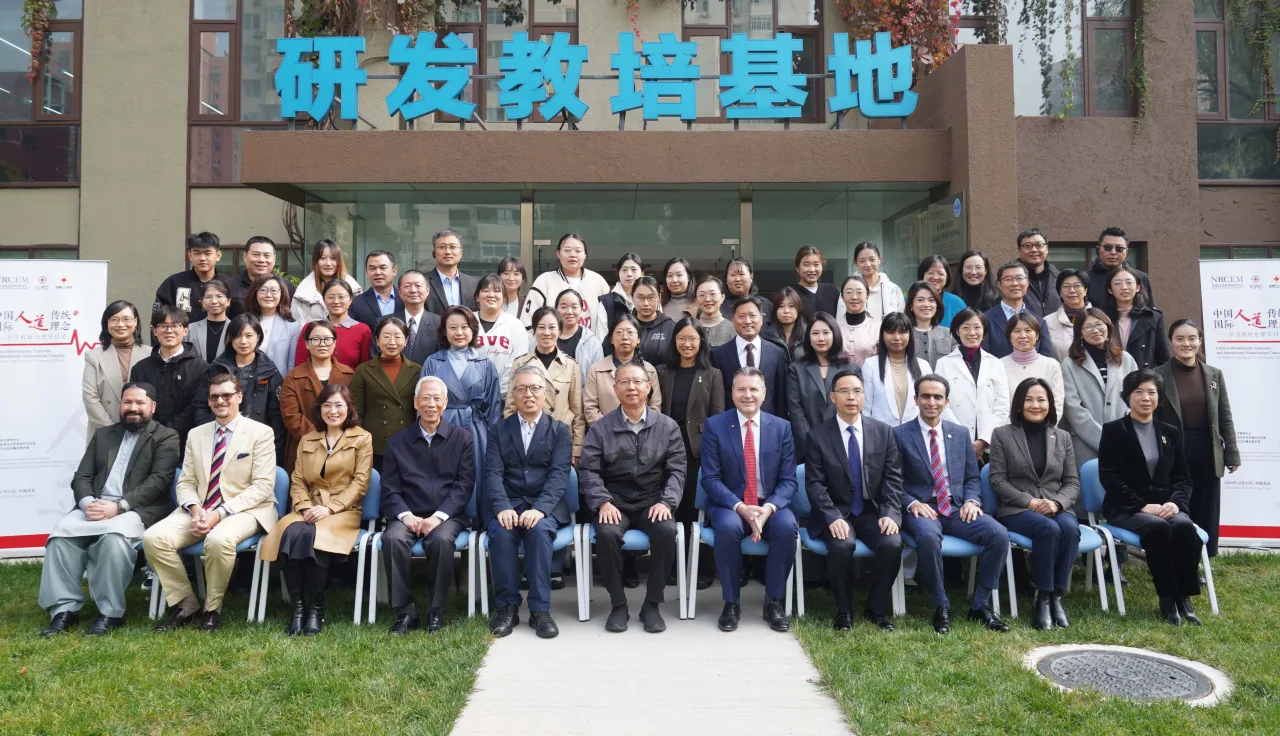
ICRC(Beijing)— On October 25, 2024, humanitarian experts, medical professionals, diplomats, relief practitioners, and scholars convened in Beijing to explore the convergences of Chinese traditions and international humanitarian concepts.
The seminar titled"Chinese Humanitarian Traditions and International Humanitarian Concepts: An Ethical Exploration of Emergency Relief" was jointly organized by the International Committee of the Red Cross (ICRC) Regional Delegation for East Asia, the National Research Center for Emergency Medicine (NRCEM), and the Relief and Health Department of the Red Cross Society of China (RCSC). The seminar sought to engage in genuine dialogue to increase the understanding and awareness of international humanitarian law (IHL) and humanitarian principles, and their convergences with Chinese humanitarian traditions.
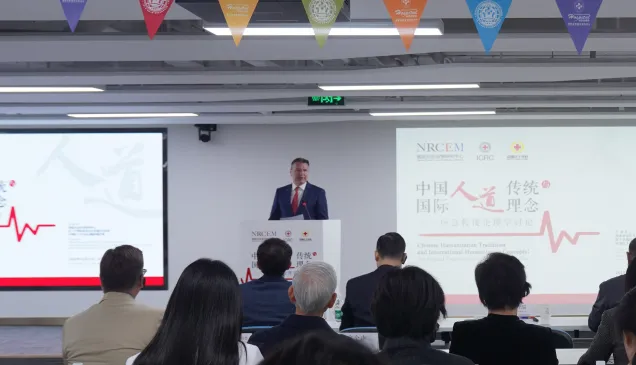
Boris Kelecevic, Deputy Head of the ICRC Regional Delegation, delivers opening remarks at the seminar.
“IHL’s core concept, respect for human life and dignity, resonates with many values in traditional Chinese culture,” stressed Boris Kelecevic, Deputy Head of the ICRC Regional Delegation, stressed in his opening speech. He also encouraged future research to deepen understanding and integration of Chinese ethical conceptsglobal humanitarian efforts, to help regulate the conduct of hostilities, reduce conflict tensions, and contribute to address global humanitarian challenges.
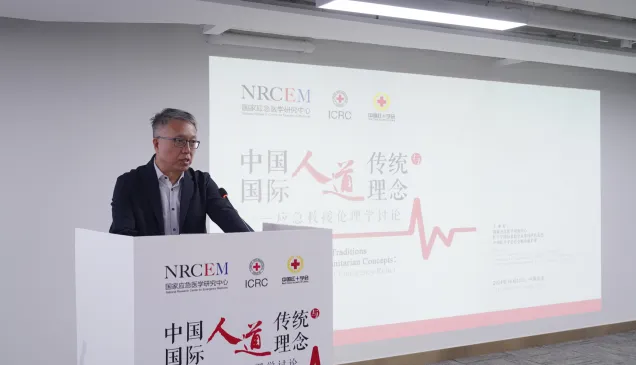
NRCEM Director Lyu Guozhong delivers opening remarks at the seminar.
NRCEM Director Lyu Guozhong emphasized China’s commitment to humanitarian values rooted in Confucianism, Taoism, and Legalism, noting China’s active role in global rescue missions and emergency medicine training. “With joint and unremitting effort, we can surely create a safer, more harmonious and prosperous world, making human society more resilient in facing various disasters and challenges,” he stated.
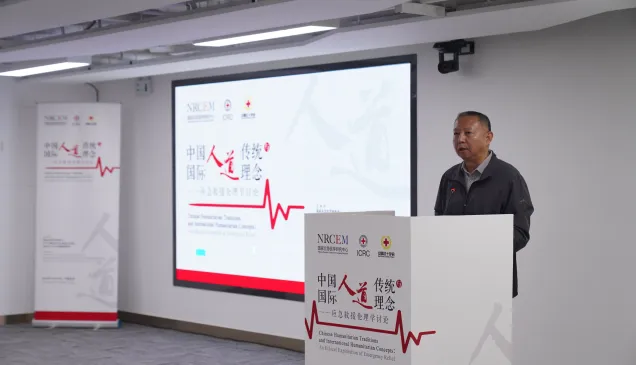
Bian Xiao, General Director of the RCSC's Relief and Health Department, delivers opening remarks at the seminar.
Bian Xiao, General Director of the RCSC's Relief and Health Department, shared insightsthe extensive work undertaken by the RCSC. He emphasized China’s role as an active participant, supporter, and contributor to international humanitarian efforts. “Under the new global landscape, understanding how best to integrate Chinese humanitarian traditions with international humanitarian concepts is essential. We must consider how China’s unique strengths can contribute more effectively to the global humanitarian landscape,” Bian emphasized.
The event featured presentations from speakers of diverse backgrounds. Charlie Dorman-O’ Gowan, ICRC’s Regional Manager for Global Affairs based in Bangkok, briefed the audience with the ICRC’s engagement with cultural and religious traditions across Asia, while Gao Jinsheng, first chairman of the Professional Committee of Humanities Medicine of Chinese Medical Association, elaborated on the humanitarian spirit in Chinese tradition. Joining remotely from Sri Lanka, ICRC Advisor Kaushalya Karunasagara contextualized IHL through the lens of Chinese humanitarian values by comparing key concepts of traditional Chinese classics with specific rules in IHL. Xu Shiling, Lecturer and Deputy Director of IHL and Humanitarian Policy at the International Academy of the Red Cross (IARC), examined the ethics of aid within cultural contexts and emphasized the importance of harmonizing traditional thought with modern humanitarian practices.
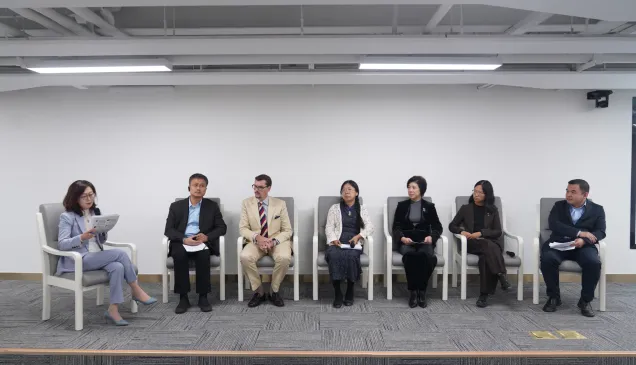
Liu Xinyan (first on the left), Legal Advisor at the ICRC Regional Delegation for East Asia, moderated a panel discussion.
The seminar also included a panel discussion moderated by Liu Xinyan, Legal Advisor at the ICRC Regional Delegation, where experts shared perspectives on various topics such as revival of Chinese humanitarian values, China’s role in international humanitarian relief, humanitarian cooperation under the framework of Belt and Road Initiative, influence of humanitarian traditions on IHL compliance, humanitarian tradition in modern emergency rescue practices, and ethical concerns of data discrimination in rescue operations.
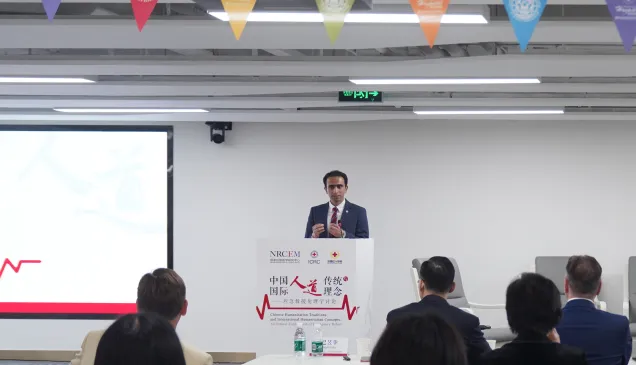
Najum Iqbal, Head of Communications at the ICRC Regional Delegation for East Asia, delivers concluding remarks at the event.
Concluding the event, Najum Iqbal, Head of Communications at the ICRC Regional Delegation for East Asia, summarized highlights of the event and commended the broad perspectives shared by speakers, panelists, and participants. He emphasized the seminar as an important step in exploring the convergence between Chinese traditions and IHL, expressing optimism for continued research in this field.




